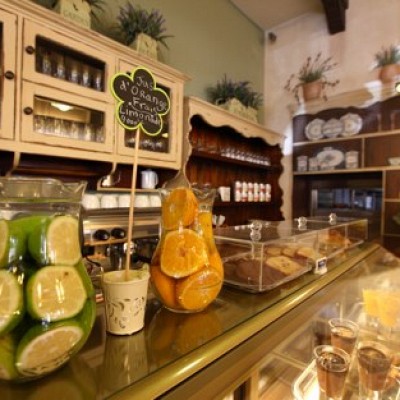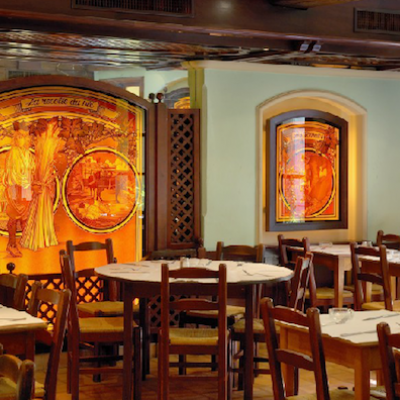In the vibrant culinary landscape of Seattle, restaurants thrive on innovation and quality. One crucial element contributing to their success is efficient storage management. From Pike Place Market to the bustling streets of Capitol Hill, Seattle's eateries can enhance their operations by optimizing storage solutions. By strategically managing inventory, Seattle restaurants can capitalize on seasonal ingredients, minimize waste, and streamline kitchen operations. This ensures freshness and flavor in dishes and aligns with sustainability goals that resonate with the community. With the right storage infrastructure, restaurants can easily navigate the dynamic demands of the Seattle dining scene, from catering events to daily service. Let's explore how proper storage techniques can elevate the culinary experience and how Seattle restaurants can benefit from storage.
Buying in Bulk
Buying ingredients in bulk is a game-changer for restaurants. Eateries can enjoy significant cost savings and operational efficiencies by purchasing items like fresh produce, grains, and meats in large quantities. Buying in bulk means fewer trips to suppliers, freeing up time for chefs and staff to focus on creating delicious dishes. Also, it allows restaurants to take advantage of wholesale prices and discounts, stretching their budgets further without compromising on quality. In addition, flexible storage can have a lot of advantages, so make sure you give self-storage in West Seattle or an area nearest to you a go.
With proper storage facilities in place, such as commercial-grade refrigeration and dry storage areas, Seattle restaurants can safely store bulk purchases so ingredients remain fresh until they're needed. This minimizes food waste and enables chefs to experiment with new menu items and seasonal specials, delighting customers with diverse and innovative culinary offerings.
Enhancing Preparation Efficiency
Eateries can optimize their workflow and reduce wait times for customers by implementing streamlined processes and utilizing effective storage solutions. Preparing ingredients in advance, such as chopping vegetables or marinating meats, allows chefs to focus on cooking during peak hours, ensuring dishes are served promptly and with precision. Use portable storage for organized meal prep, with labeled containers and shelving systems keeping ingredients easily accessible.
Prioritizing preparation efficiency, Seattle restaurants can benefit from storage and maintain consistency in food quality while maximizing customer satisfaction. Whether it's a busy lunch rush or a dinner service, efficient preparation ensures that every dish is served with care and attention to detail.
Embracing Portable Storage Solutions
Flexibility is key in the restaurant business, and PortaBox Storage Seattle portable storage offers an innovative solution. They have been around since 1993 and conveniently offer door-to-door delivery and pick-up services. Whether it's a food truck serving gourmet delights at a local festival or a pop-up restaurant setting up shop in a new neighborhood, portable storage options provide the flexibility needed to adapt quickly to changing environments. These versatile storage solutions come in various forms, from mobile refrigeration units to compact shelving systems, allowing restaurants to transport and store ingredients, equipment, and supplies easily.
PortaBox portable storage facilitates efficient setup and teardown and enables restaurants to expand their reach beyond brick-and-mortar locations, engaging with customers in diverse settings. With portable storage, Seattle restaurants can embrace mobility without sacrificing quality, delivering exceptional dining experiences wherever their culinary adventures take them.
Extending Shelf Life Is How Seattle Restaurants Can Benefit from Storage
Maintaining ingredient freshness and proper storage techniques are paramount for any restaurant. Implement the following strategies to extend the shelf life of perishable items:
- Vacuum sealing removes air from packaging, preventing spoilage and preserving flavors.
- Commercial-grade refrigeration units maintain optimal temperatures, keeping ingredients fresh for longer periods.
- Dry storage areas with controlled humidity levels prevent moisture-related spoilage, preserving the integrity of dry goods.
These storage practices reduce food waste and ensure that Seattle restaurants can consistently deliver high-quality dishes to their patrons. With extended shelf life, chefs have the flexibility to plan menus in advance, minimize last-minute ingredient runs, and adapt to fluctuations in customer demand.
Wine and Special Beverage Storage
Some Seattle restaurants have extensive wine collections or special beverages that require controlled environments. Specialized storage facilities can provide the right temperature and humidity for these items.
Importance of Controlled Storage for Wine and Special Beverages
- Temperature Regulation: Wine and certain craft beverages (like some beers and ciders) are sensitive to temperature changes. Fluctuations can alter their taste, aroma, and aging process. A constant, ideal temperature (often around 55°F for wine) is crucial for maintaining their quality.
- Humidity Control: Too much humidity can lead to mold growth and label damage, while too little can cause corks to dry out, leading to oxidation and spoilage of the wine. Controlled humidity (typically around 60-70%) is essential for long-term storage.
- Space Efficiency: In a city like Seattle, where restaurant space can be at a premium, off-site storage allows for a more extensive collection without sacrificing valuable on-site space.
How Seattle Restaurants Utilize Specialized Storage
- Off-Site Wine Cellars: Restaurants may use off-site cellars to store large collections, rotating stock to their premises as needed. This approach allows for a more extensive selection and the ability to age wines appropriately.
- Collaboration with Storage Facilities: Some restaurants collaborate with specialized storage facilities that offer wine-specific environments. These facilities can provide additional services like inventory management and delivery.
- Custom-Built On-Site Storage: For some high-end restaurants, investing in custom-built, climate-controlled storage on their premises is worthwhile. This allows for immediate access and can be a feature that attracts customers.
Staying Compliant
Adhering to health and safety regulations is important for the success of any restauranteur. Proper storage practices are integral to maintaining compliance with regulatory standards. Investing in adequate storage facilities and following best practices for food handling enables restaurants to avoid fines and maintain a positive reputation. Organized storage areas with clear labeling and temperature monitoring systems ensure that perishable items are stored at safe temperatures.
Regular inspections and staff training further contribute to regulatory compliance, demonstrating a commitment to food safety. Prioritizing compliance through effective storage management, Seattle restaurants not only mitigate the risk of regulatory penalties but also uphold the trust and confidence of their customers.
Unlocking Success
Seattle restaurants can benefit from storage in numerous ways. From reducing food waste to enhancing preparation efficiency and ensuring regulatory compliance, the benefits are plentiful. Eateries can capitalize on seasonal ingredients, streamline operations, and maintain quality standards by maximizing storage solutions. Investing in proper storage infrastructure demonstrates a commitment to excellence and customer satisfaction while supporting sustainability goals. Embrace the benefits of storage to enable your restaurant to thrive in the competitive market and delight patrons with exceptional dining experiences.






































